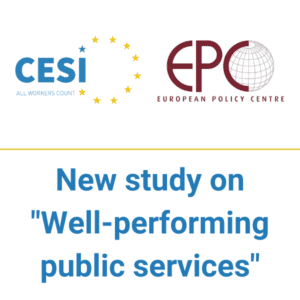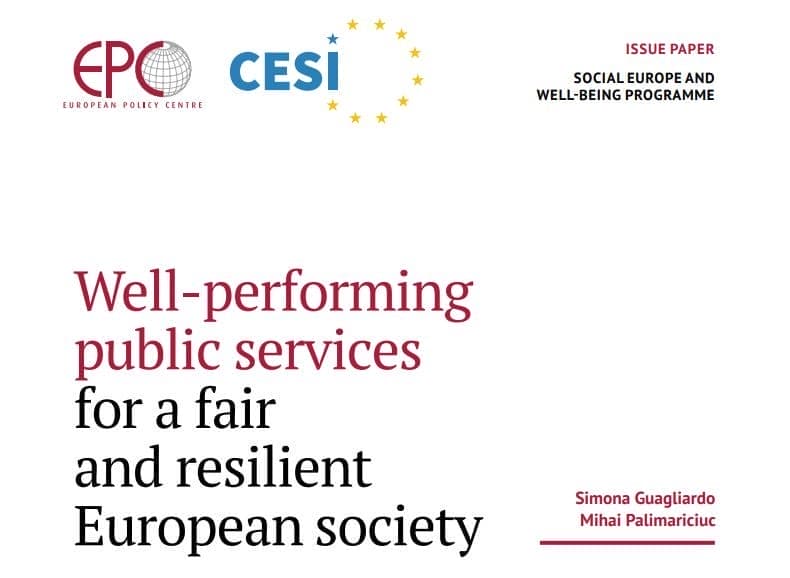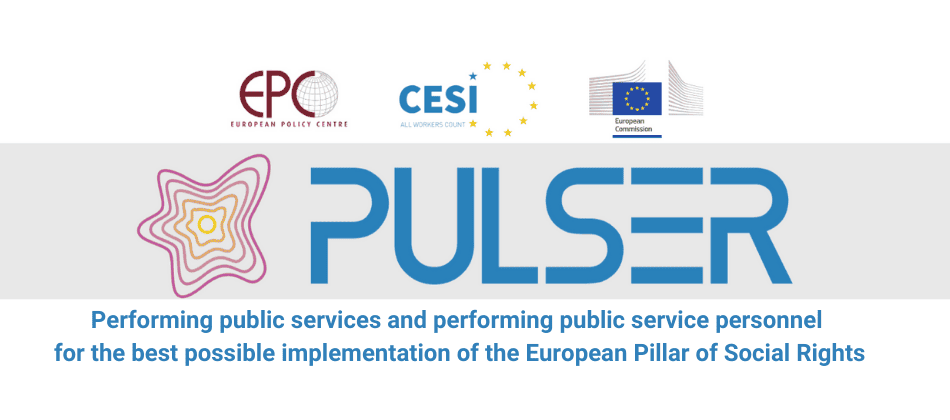2021-02-11 09:16
The European Policy Centre (EPC) has published a new study on ‘Well-performing public services for a fair and resilient European society’. Bringing forward evidence from the areas of administration, healthcare, education and public order and safety, the study showcases the importance of reinforced support and investments in public services and its personnel – needed urgently already before the Covid pandemic and even more so now as the socio-economic fallout of the Corona crisis unfolds.
 The authors of the study, Simona Guagliardo and Mihai Palimariciuc, find in particular that:
The authors of the study, Simona Guagliardo and Mihai Palimariciuc, find in particular that:
- The European Commission must encourage the national governments to “renew their support for public services, addressing the current financial and investment shortcomings” – not only but especially as a result of the Covid crisis. This relates both to country-specific recommendations to individual Member States at the end of the European Semester cycles as well as to more flexibility to remove investments from national debt calculations under the Stability and Growth Pact.
- “EU member states must aim to improve the resilience and service quality of public services.” According to examples from the study, recruitment and career progression schemes must be modernised in many public administrations, staff numbers and equipment need to be boosted in numerous healthcare systems, more funding for the training of teachers is often necessary, and steps are necessary to fill gaps in the access to judicial services.
- “The public sector workforce must be equipped with the right tools to face ongoing [digital] transformations” – which necessitates additional investments in lifelong learning and in the upskilling of the workforce.
- Public services must be made more attractive to “new and young talent to address labour shortages” – which may require both higher wages as well as campaigns to raise the public and social recognition of public services and to further highlight advantages of public sector employment, such as working for the common good.
CESI Secretary General Klaus Heeger said: “Boiled down to one point, the study concludes what CESI has been demanding for long: Resilient public services are indispensable, and in many Member States and sectors this requires significantly more public investments than in the past. And it appears clearly that investments must span not only to facilities and equipment, but also to working conditions, training and, where applicable, the decent remuneration of the staff. Without, existing personnel cannot deliver high quality services over time and too little new young talent will be attracted to the public services.”
He added: “Investing now may seem like costing a lot, especially now as money is scarce in times of the costly Covid pandemic, but it will pay off in the long run and be for sure cheaper than fixing problems once they inevitably come up at some point in the future. The study spells out clearly that the European Commission has, generally, an active role to play to enable and encourage the Member States to invest in their public services and maintain their quality.”
Read the full study here

This study is the result of a cooperation between the European Policy Centre (EPC) and the European Confederation of Independent Trade Unions (CESI), in the context of the EU-funded project, “PULSER –Performing public services and performing public service personnel for the best possible implementation of the European Pillar of Social Rights”.
More info about the PULSER project.



